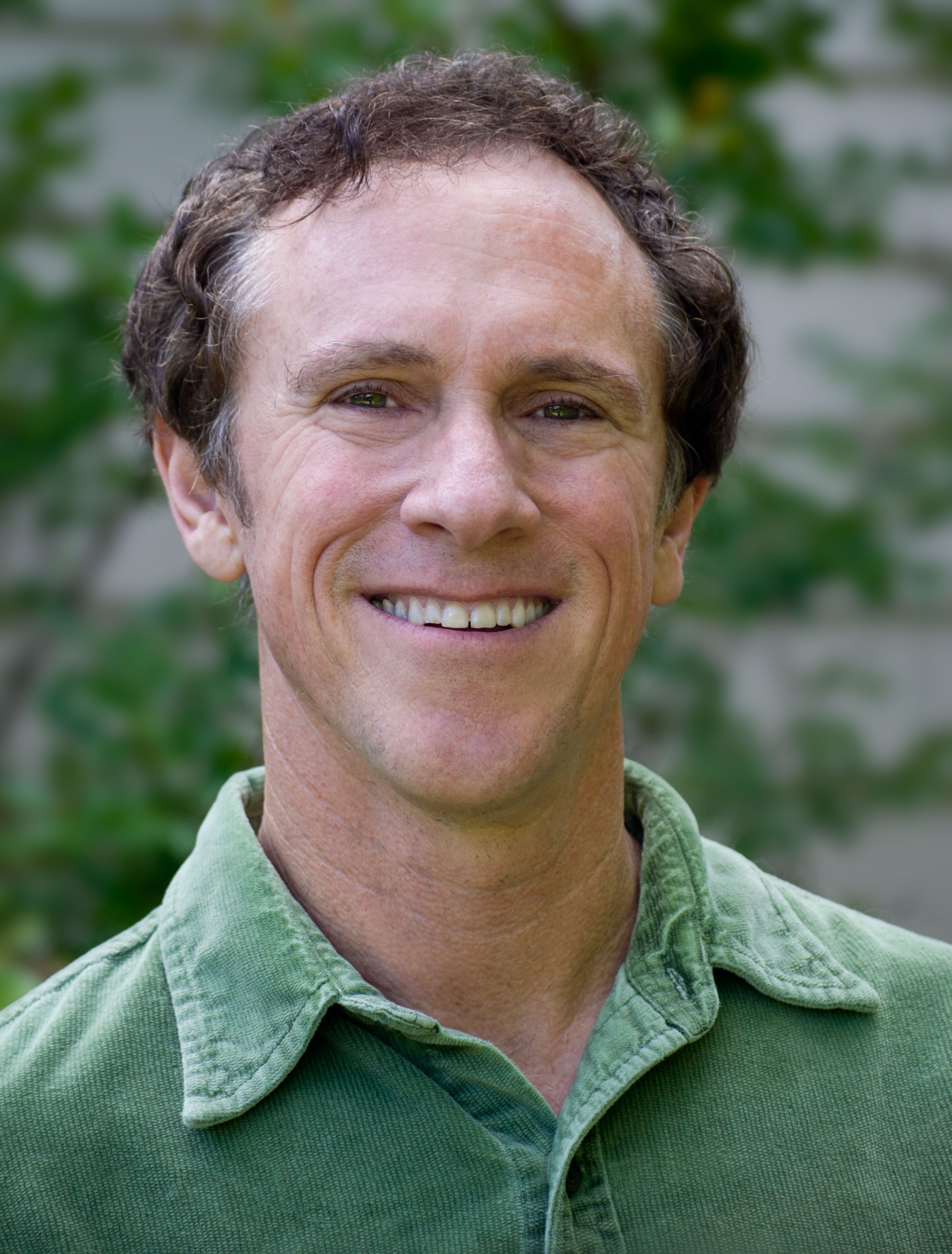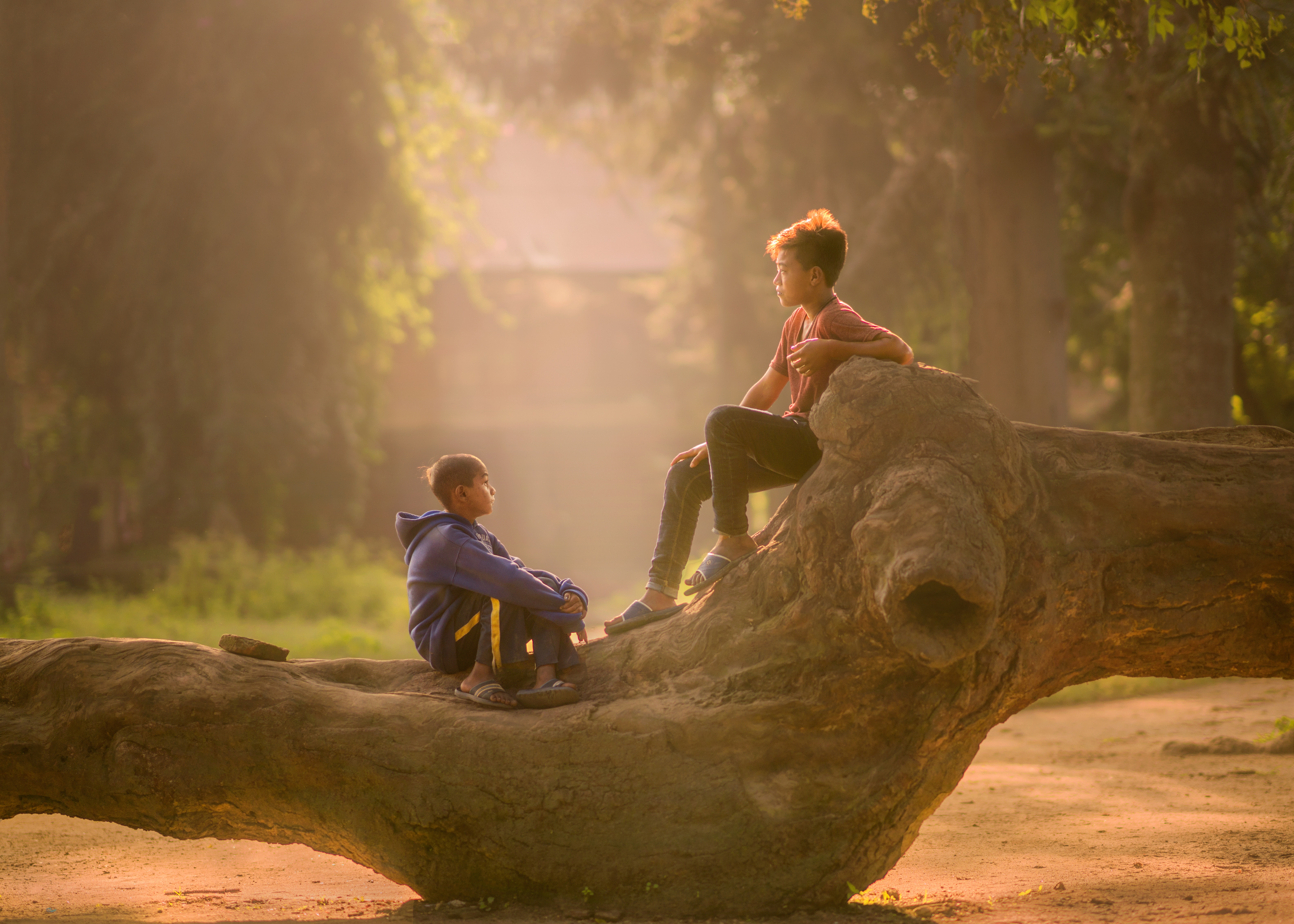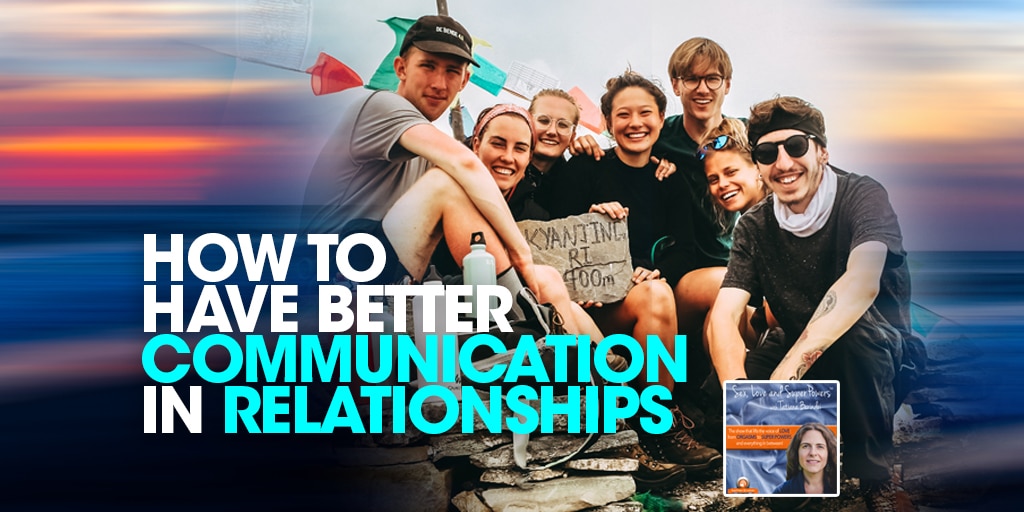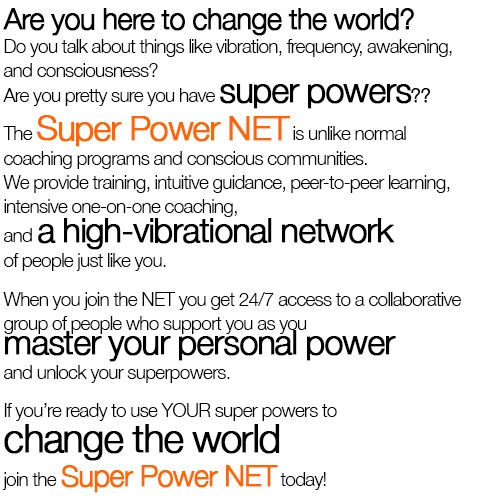 Jonathan Robinson, psychotherapist and bestselling author of 12 books, joins Sex, Love and SuperPowers host Tatiana Berindei to discuss how to have better communication in relationships. His new book More Love, Less Conflict is chock full of easy, simple tips and tools to use to boost your communication and have more love in the relationships that mean the most to you. Listen in as he gives away some powerful secrets that can help you transform your relationships for the better!
Jonathan Robinson, psychotherapist and bestselling author of 12 books, joins Sex, Love and SuperPowers host Tatiana Berindei to discuss how to have better communication in relationships. His new book More Love, Less Conflict is chock full of easy, simple tips and tools to use to boost your communication and have more love in the relationships that mean the most to you. Listen in as he gives away some powerful secrets that can help you transform your relationships for the better!
Hello, everyone, and welcome to the Sex, Love, and SuperPowers podcast show. I am your host, Tatiana Berindei and today I am really excited to have with me Jonathan Robinson. We’re going to be discussing how to have better communication in relationships. Jonathan Robinson is a psychotherapist, a bestselling author of 12 books, and he’s been a frequent guest on Oprah and CNN. In addition, his work has been featured in USA Today and Newsweek magazine. He recently wrote a book called More Love, Less Conflict and he’s here with us today to talk about how to have more love, less conflict and better communication in our relationships. Welcome to the show, Jonathan Robinson.
Thank you, Tatiana. I’m really excited to be here.
Yeah, so we like to start our guests off with the question what are your superpowers?
Well, I have two. I don’t always reveal both of them but I’ll do that for your audience.
Ooh.

Communicate in a way that creates more love.
One is I like learning from experts and that’s a great way to get new skills very, very quickly. I’ve interviewed everybody from Oprah to the Dalai Lama and found out what their particular skills are and that helped me to develop mine. Then the other superpower is learning how to communicate in a way that creates more love and less conflict. Once you have that superpower, everything in your life tends to go better.
Yeah, I couldn’t agree with you more. You and I have a lot in common. I do have this show and I like to interview experts too, and I love this topic of communication. I have found it to be in my own personal life one of the most transformative topics and places where I have grown and advanced myself and continue to gain new skills. For our listeners out there, sometimes I think when we go on this journey of deepening our communication and learning how to do it better, we can forget sort of what the beginning steps are to healthy communication but I would love to hear from you in your depth of expertise what you have found some of the biggest obstacles to healthy communication to be.
Well, the biggest obstacle is people think that they’re already good at and if you think that you’re already good at then you won’t learn anything new, so that’s really the biggest obstacle. Also, some books and methods about communication I think. I try to come up with methods that literally take under 20 seconds to do and you can use even when stressed, so make it so simple that you basically can’t blow it and having all the best methods in one book I thought would be really a good way to get this information out there because I think of good communication as like a technology. You know, like an iPhone is a great technology because it’s very easy to use, and we need to make good communication and getting back to a place of love just as easy, especially in this stressful age we live in.
Absolutely. Absolutely. Can you give us an example of what some of these like 20 second tools are?
Yeah, well I have 50 of them in the More Love, Less Conflict book and throughout our interview I’ll sprinkle maybe five or six and even try out a couple with you.
Great.
But let me give an example of how simple it can be. My wife and I 20 years ago when we got married, we used to argue a lot and now we haven’t had an argument in five years.
Wow.
Because we have a method that only requires saying two words and the words are ‘red light’ and red light is an indication to both of us, whether she says it or I say it, that we have to take two minutes to be quiet and just calm down. Arguments happen because people develop a momentum of upset and then they say hurtful things and then they have to recover from that, that’s all kind of a drag, but if we’re getting upset, one of us will say ‘red light’, we’ll just take some deep breaths for two minutes, and by the time two minutes is over, we’re back into our rational mind versus our brain, and we can work it out.
Some of the methods are really that simple for having less conflict and there’s also a lot of methods that can immediately double the amount of love in a relationship if you know exactly how to aim for that. You and I will try out some of those methods as well.
Awesome. Now, I mean, we’re talking about this idea more love, less conflict, one would think that someone in an intimate relationship would be … We’re talking about marriage, like this is where you would try out those skills, but wouldn’t you think or would you say that these skills are just as easily transferable to not intimate partnerships, because there’s a lot of conversations happening, especially in our political climate today that are pretty … We’re in an atmosphere of conflict.

We all want understanding, we all want care, we all want empathy.
Yeah, well you’re right that the same methods really work in all relationships, whether it be parent, child, co-worker, friend, whatever, because human beings are the same. We all want the same things. We all want understanding, we all want care, we all want empathy, so the methods really are applicable to all people but I marketed it kind of towards couples just because they’re the ones that feel the pain of not being able to communicate really well, so that’s where the focus was.
Absolutely, and with a tip like the one that you just gave us of the red light, I mean, that is a tool that you would have to sort of come into agreement with your partner on saying like okay, we’re going to agree that this is what we say when it’s getting too heated and we take a break. I mean, you can’t necessarily do that if you’re in a conversation with someone who you just met, for example, right?
Yeah, that’s true, but you know, there are certain methods that certainly don’t need that agreement and in fact, in my opinion, in dancing it does take two people to tango, but it does not take two good communicators to get to a good place of connection. It really only takes one. Like if I asked you a good question, you’re likely to answer that question. You don’t have to be a great communicator. The question that I asked elicits a good quality response. Like if I ask you what helps you to feel really loved and cared for, you’re not going to say bug off.
Right.
You’ll probably be able to answer that and then I have useful information about how to treat you in a way that you’ll feel good about.
Well and even asking somebody that question, I think elicits a … I would feel more comfortable with you if you actually cared enough to ask what makes me feel loved and cared for.
Yeah, yeah, and a lot of the methods in the book involve questions and a lot don’t but I have something on my website called the 12 Questions of Intimacy and these are questions you can ask anyone that will elicit a sense of intimacy with them. If you look at the word intimacy, the instructions are actually in the world. In-to-me-see.
Yeah.
So you know, when you reveal stuff about yourself you can get back to that place of love and people can download those questions for free.
Beautiful, and since we do have to go to a quick break, why don’t you tell everyone what that website is, where they can go to find those questions, and more about your book.
Sure. The website is the same title as the book, MoreLoveLessConflict.com and there’s a thing to download those 12 questions from the website and they can do that for free.
Awesome. Well, we’ve been talking with Jonathan Robinson about how to have better communication in relationships. Stay tuned. When we get back, he’s going to give us a few more tips hopefully, so you won’t want to miss it. Stay tuned.
To listen to the entire show click on the player above or go to the SuperPower Up! podcast on iTunes.
Music Credit: All instruments played by Amanda Turk. Engineered and produced by Tatiana Berindei and Daniel Plane reelcello.com
Podcast: Play in new window


